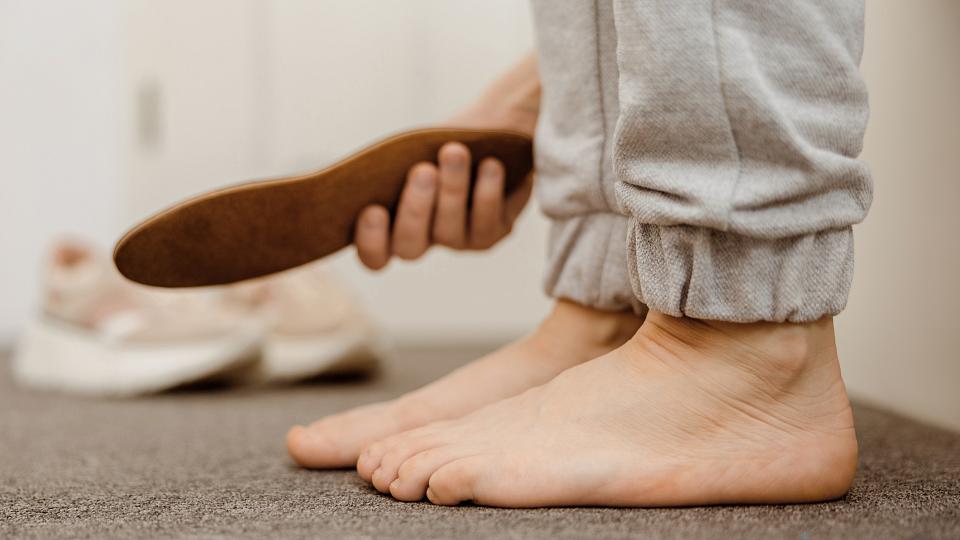
When Should I See a Doctor for a Foot Injury?

If you’ve injured your foot on a hike, run, or bike ride, the first question you’ll probably ask is: Do I need to see a doctor? The good news is that if your pain is only mild, it’ll probably go away on its own after a couple weeks—especially if you rest.
You should make a doctor’s appointment after a foot injury if:
- you feel pain in your foot for most of the day and it’s been a few weeks since your injury.
- your pain worsens over time.
- you have swelling that isn’t getting better two to five days after your injury.
- you feel tingling, numbness, or burning pain—especially in the bottom of your foot.
If you have tingling, burning, or numbness, you may have injured the nerves in your foot. Injured nerves can cause a condition called peripheral neuropathy. Some people with neuropathy also say it feels like having pins and needles in their feet. Over time, peripheral neuropathy can cause infections, burns, and falls. So it’s important to see a doctor who can provide treatment.
When to Go to Urgent Care or the ER for a Foot Injury
Even though many foot injuries heal on their own, some foot injuries require immediate treatment.
You should go to urgent care for injuries with:
- mild to moderate pain,
- difficulty walking or bearing weight,
- swelling that does not get better within a few days of an injury,
- bruising,
- new foot or toe deformities, or
- tingling, burning, or numbness in your foot.
Go to the emergency room if:
- there’s an open wound on your foot.
- pus is coming out of your foot.
- you can’t walk or put weight on your foot.
- you experience severe bleeding.
- there are broken bones coming through your skin.
- you feel lightheaded or dizzy.
- you think your foot could be infected.
You may have an infection if the skin around your injury is warm, red, or tender. You may also have an infection if you have a fever over 100 degrees F.
Orthopaedic Injury Clinic
You can also go to our Orthopaedic Injury Clinic, which offers extended hours and walk-in availability for sports and other orthopedic injuries. Providers at our walk-in clinic will treat your injury and refer you to an orthopedic foot specialist for follow-up care.
Foot Pain Remedies at Home
You may not need to see a doctor after a foot injury. If your pain is manageable and you don’t have an infection, you can most likely safely treat your injury at home.
When treating your foot at home, be sure to follow these guidelines:
- Rest—Don’t do any activities that strain your foot (even if these activities are part of your normal, day-to-day routine). These may include things like hiking, biking, and running.
- Ice—Place ice or freeze packs on your foot multiple times each day, for 15-20 minutes each time.
- Medications—Over-the-counter medicines like ibuprofen can help with swelling and reduce pain.
- Protect & Support—Use a brace or bandage to protect and support your foot until it heals.
Foot Pain & Stiffness
It’s important to remember that you’ll probably have pain and stiffness for a few weeks after your foot injury—even if you’re treating your injury correctly. Many people experience foot pain in the mornings while their foot is still healing or once they start walking after sitting for a long time.
Diabetes & Foot Injuries
People with diabetes have higher chances of having nerve damage in their feet (diabetic neuropathy). Nerve damage can make it harder to feel sensations in your feet.
If you have diabetes, you may not feel cuts or sores on your feet. Even if your feet feel okay, it’s important to see a doctor after you’ve had a foot injury. Diabetes can also make it harder for cuts and sores in your feet to heal. That’s because diabetes weakens normal blood flow inside your body.
Make an Appointment with an Orthopedic Specialist
If your foot injury hasn’t healed and it’s been a few weeks, you may benefit from seeing a doctor. You can make an appointment with an orthopedic foot specialist who has expertise in treating foot injuries.
You can also get a referral to see our orthopedic specialists from:
- your primary care provider,
- a provider in the urgent care or emergency room, or
- a provider at our walk-in Orthopaedic Injury Clinic.
Some insurance plans require that you get a referral from your primary care provider in order to see a specialist. Check with your insurance carrier to find out if this is required to get coverage under your plan.





